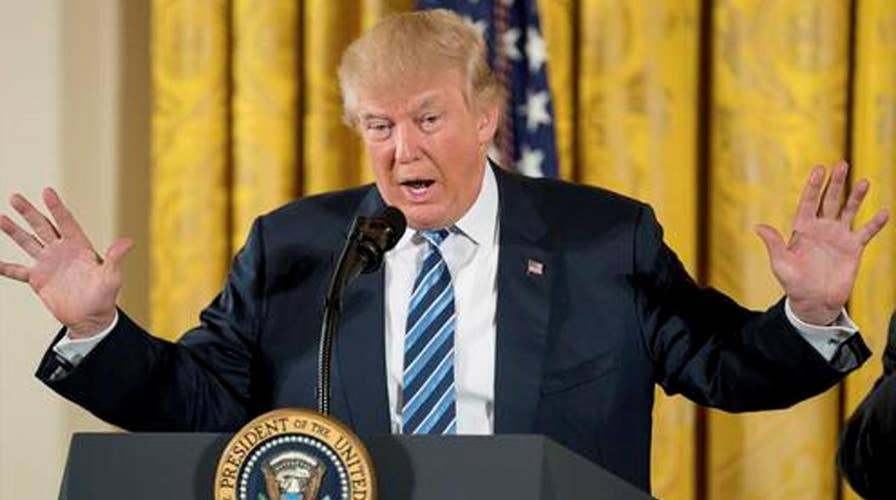Trump's targeting of sanctuary cities sparks debate
Fair and balanced debate on 'America's News HQ'
President Trump’s vow to cut off millions of dollars in federal funds to cities that protect undocumented immigrants has set up a clash not only between his administration and local mayors -- but between the largely Democrat-led cities and Republican-led states.
GOP governors who share Trump's goal of ending sanctuary city policies could even be in a better position than the president to pressure local governments defying federal requests.
“State governments can have a lot more control over local municipalities than the federal government does,” Angela Morrison, a professor at Texas A&M University’s School of Law, told Fox News.
Already, Texas Gov. Greg Abbott is vowing to pursue legislation to "remove from office" any local official who promotes sanctuary cities.
The Republican governor announced the legislation in an interview last week with "Fox & Friends." The comments came amid a dispute between Abbott and Travis County Sherriff Sally Hernandez, who announced she would reduce her department's cooperation with federal officials when they request an inmate be deported.
Abbott earlier threatened to cut off around $2 million in state funding to Hernandez’s office if she doesn’t comply.
“The power of the purse is going to be big because the state can tie funding to existing laws,” Morrison said.
Texas is just one example where state and local governments are poised for a clash over "sanctuary" policies, which Trump said in his order "willfully violate federal law" and "have caused immeasurable harm to the American people."
New Jersey
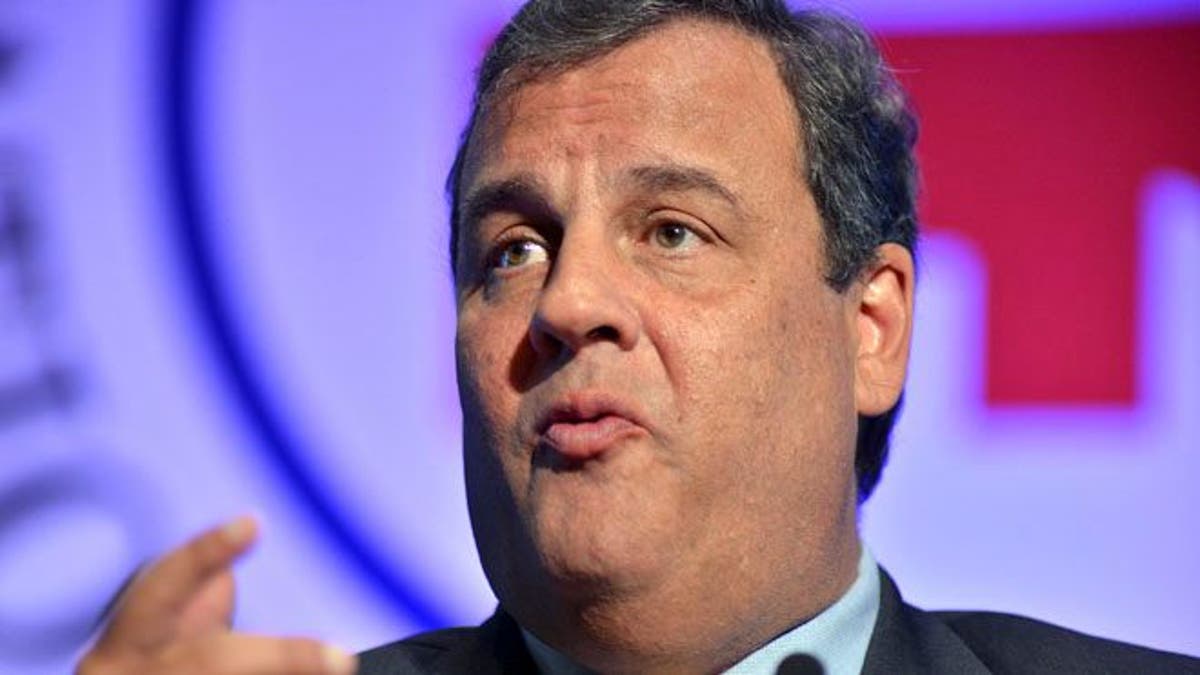
New Jersey Gov. Chris Christie speaks to fellow Republicans, Thursday, Aug. 15, 2013 during the Republican National Committee summer meeting in Boston. (The Associated Press)
Numerous cities across the Garden State have vowed to defy Trump’s executive order even as Gov. Chris Christie – an adviser to the president – backs Trump’s promise to cut funding to them.
"We intend to stand by our principles and values as a city," Jersey City Mayor Steven Fulop said in a statement. "Jersey City was founded as a city of immigrants, and we are unwilling to be part of orders that break families apart or harm immigrants who are in this country."
Christie last week, however, reiterated his support of Trump’s orders. The governor so far has given no indication of what moves he would take against cities that fail to comply.
"I agree with [Trump]. I took that same position when I ran for president,” Christie said on his monthly call-in radio show. “Elected officials can't be allowed to pick and choose which laws they choose to comply with."
East Orange, Maplewood, Newark, Princeton, and Middlesex and Union counties also are considered sanctuary jurisdictions, although the definitions of what that is varies.
In some cases, sanctuary cities tell police not to inquire about the immigration status of those they encounter, or they decline requests from immigration officials to keep defendants in custody while they await deportation. Other municipalities cooperate with such "detainer" requests as long as they're backed by court-issued warrants, but won't allow local officers to enforce federal immigration law.
Texas A&M’s Morrison said it would be difficult for Christie to enforce Trump’s orders as the state adheres to home rule which gives local municipalities much more power in administering laws.
Illinois
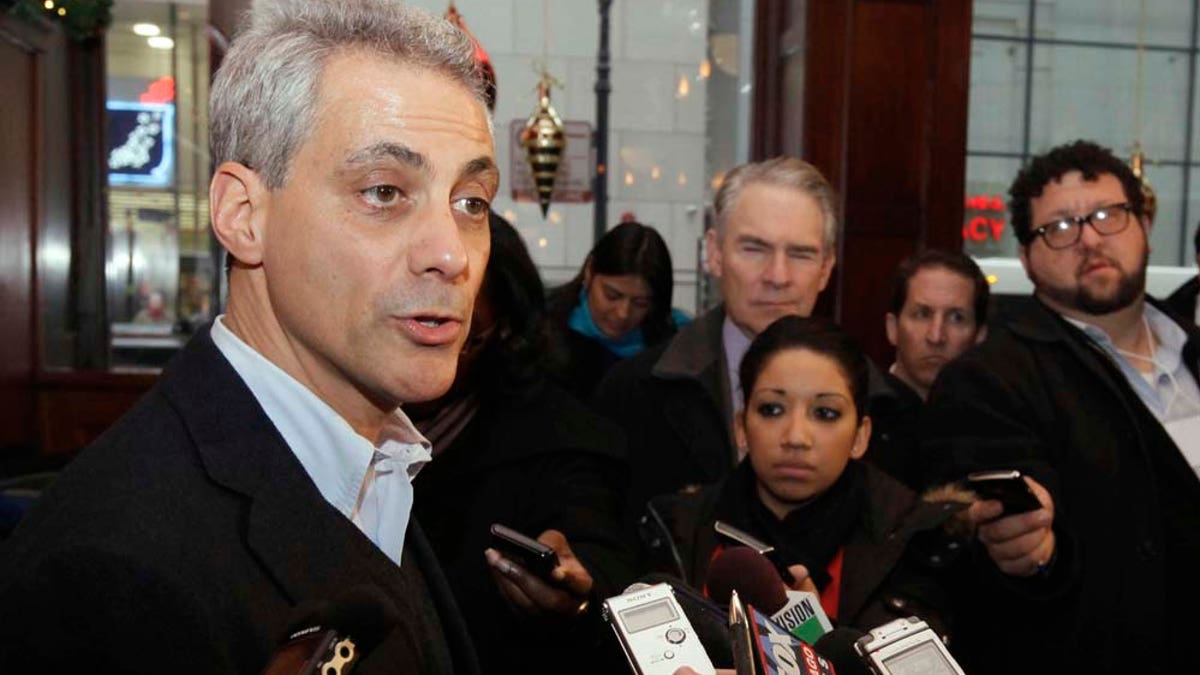
Chicago Mayor Rahm Emanuel speaks at a press conference in Chicago. (The Associated Press)
The city of Chicago has been a major target of Trump’s criticism since the campaign. And Mayor Rahm Emanuel – who served as President Barack Obama’s chief of staff and is no fan of Trump's –dug in after the sanctuary city measure was signed.
"We're going to stay a sanctuary city," Emanuel said. "Wherever you came from, you're welcome here."
Emanuel has not said how much money Chicago stands to lose for being a sanctuary city – or given any details about how he would fill the gap in federal funding – but the city would otherwise be expected to receive $1.3 billion (14 percent of its 2017 budget) from Washington. The Center for Tax and Budget Accountability said Trump would need Congress' approval to take back all the city's federal funding.
Whether a battle is looming with the state is not yet clear.
Illinois’ Republican Gov. Bruce Rauner so far has remained mum on the issue of sanctuary cities – despite pressure from Emanuel to take a position. When asked to respond to Chicago’s plan to remain a “sanctuary city,” a Rauner spokeswoman sent the Chicago Tribune a statement reiterating the governor's support for immigration reform.
Louisiana
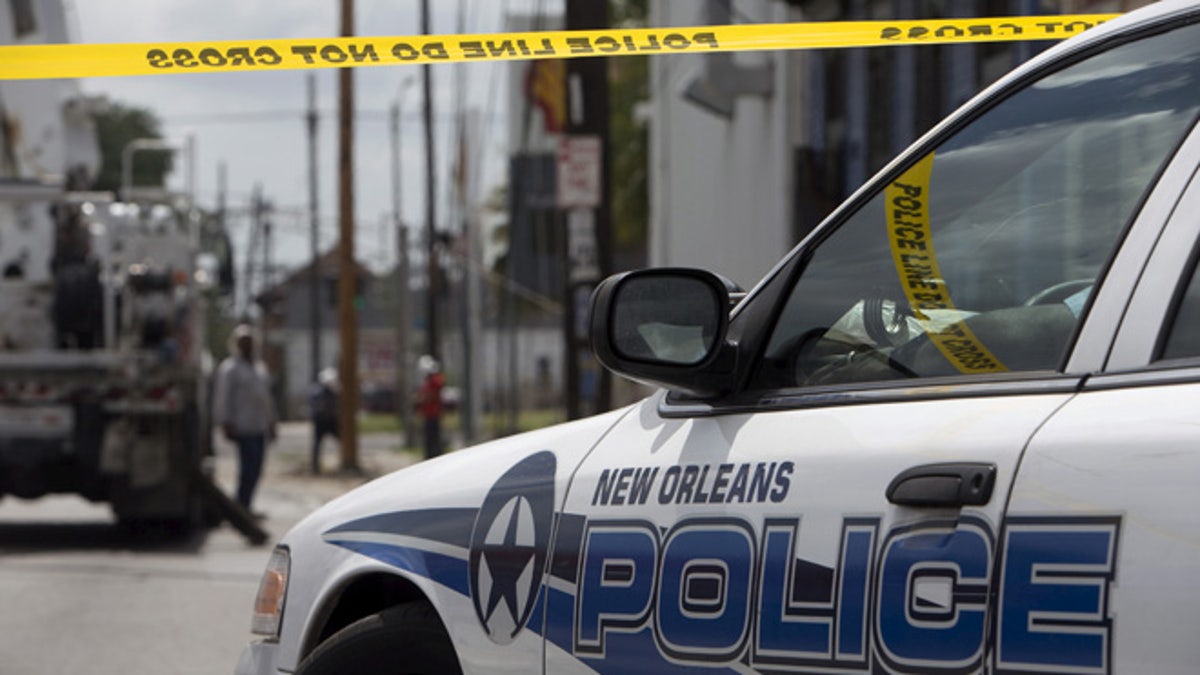
Police officers watch over the scene where New Orleans police officer Daryle Holloway was shot in New Orleans June 20, 2015. Holloway was shot and killed on Saturday while transporting a suspect to jail, and a manhunt was under way for the gunman, officials said. REUTERS/Lee Celano - RTX1HEKE (REUTERS/Lee Celano)
Following the San Francisco killing of Kate Steinle by an illegal immigrant in 2015, numerous lawmakers across the country began calling for a crackdown on sanctuary cities.
One of the most vocal was former Sen. David Vitter, a Republican from Louisiana who pushed legislation to deny immigration enforcement funding to cities with sanctuary policies. One of those cities turned out to be New Orleans.
The city police department's policy on immigration hold requests dates back to 2013 and was part of the settlement to a civil rights lawsuit centering around construction workers who were held long after their sentences expired.
Vitter did not get his wish, however, and in 2016, the NOPD implemented a policy forbidding officers from so much as inquiring into an individual's immigration status.
Despite a Republican-controlled legislature in Baton Rouge, a state Senate committee last spring gutted a bill that would have punished two sanctuary cities and effectively killed the bill before it was brought to the floor.
But even though the state has a Democratic governor, the issue could resurface in the wake of Trump's order.
Massachusetts
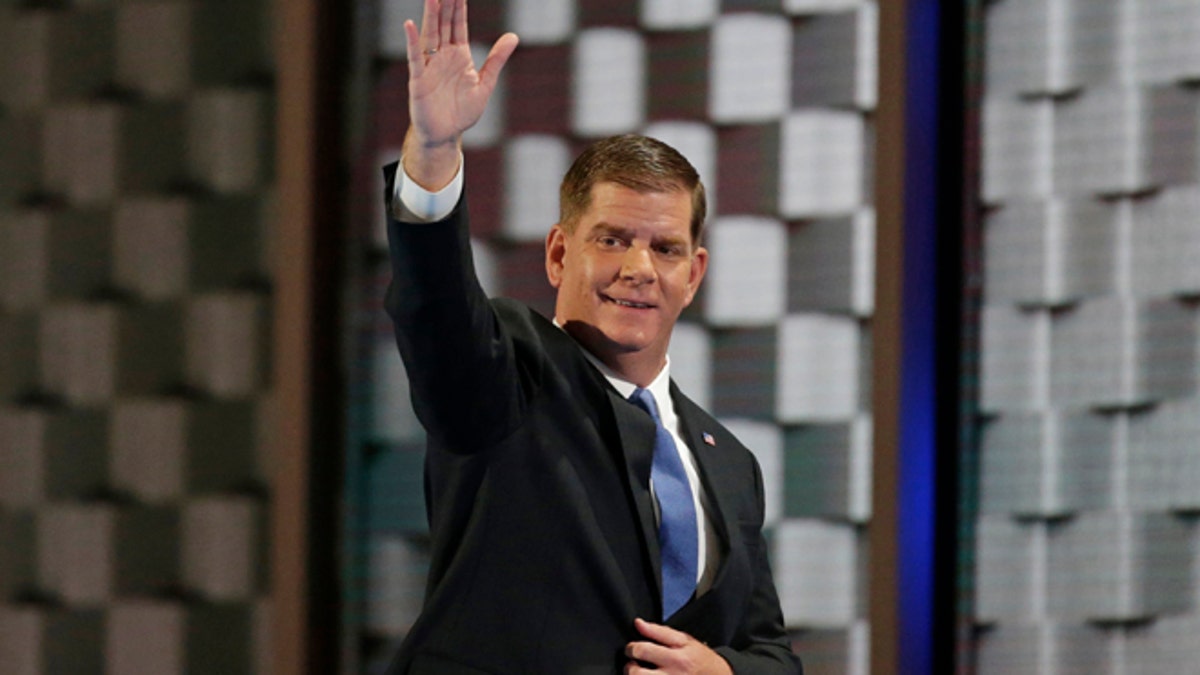
Boston Mayor Martin Walsh waves at the Democratic National Convention in Philadelphia, Pennsylvania, U.S. July 25, 2016. REUTERS/Gary Cameron - RTSJLV3 (REUTERS)
Perhaps no official has gone further to defy Trump’s vow than Boston Mayor Martin Walsh.
The first-term Democratic mayor said last Wednesday he would do everything in his power to protect Boston residents living in the country without authorization – even if that means using City Hall as a shelter.
“If people want to live here, they’ll live here. They can use my office. They can use any office in this building,’’ Walsh said during a press conference at City Hall, according to the Boston Globe.
“Washington is advancing the most destructive and un-American threat on America during the campaign,’’ Walsh added. “The latest executive orders and statements by the president are a direct attack on Boston’s people, Boston’s strength and Boston’s values.”
Massachusetts is one state, though, where the differences between city and state officials might not lead to a major clash.
Republican Gov. Charlie Baker, during a forum last week that he and the Boston mayor attended, said while he doesn’t want the Bay State to become a “sanctuary state,” he believes cities and towns “should be allowed to make their own decisions” in regards to their approaches in law enforcement.
Boston's version of the 2014 Trust Act prevents police from reporting immigrants to federal authorities. Supporters of the act say its intent is meant to keep local police out of the business of deportation and to make sure that immigrants don’t see law enforcement as a threat.
